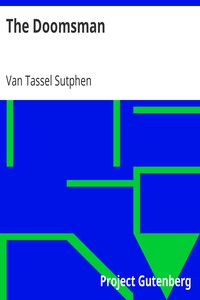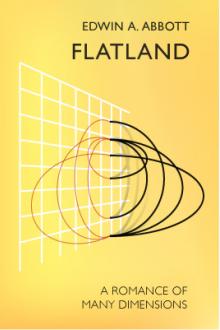The Doomsman, Van Tassel Sutphen [top books to read TXT] 📗

- Author: Van Tassel Sutphen
Book online «The Doomsman, Van Tassel Sutphen [top books to read TXT] 📗». Author Van Tassel Sutphen
Interminable it seemed, and the sense of loneliness and oppression, which lay heavy on Constans's spirits, increased steadily as he went from one landing to another. Each succeeding story was so precisely like the one he had just left; it was always the same long, marble-paved corridor, with every door and window exactly duplicated. How could living men and[Pg 66] women have endured the appalling uniformity of this human beehive? Everywhere, too, were the same recurring evidences of the haste and panic that had characterized the final moments of that terrible hegira. Hats and garments, cash-boxes and account-books, littered the hallways, and were piled in little heaps at the entrances to the elevators—impedimenta that must inevitably be abandoned at the last if life itself were to be saved. And the final tragedy—an elevator cage that had jammed in its ways and so hung fixed between two landings. Its occupants had suddenly found themselves entrapped, with no one to hear or to help. One can fancy the growing uneasiness, the wild amaze, the terror that was afraid of the sound of its own voice. Constans hurried by; he had looked but that once.
Onward and upward, and at last he had gained the topmost floor. It was hardly worth his while to ascend to the roof itself, and so he walked into a room that faced the north and consequently commanded a view of the city along its longitudinal axis. He gazed long and earnestly into the obscurity, and far in the distance he caught the faint twinkle of a solitary light—a camp-fire, perhaps. He tried to fix its bearings in his mind; if it were a fire it must indicate the neighborhood of the Doomsman stronghold.
For a long time Constans stood at the window seeking to penetrate the mystery of the darkness that surrounded him; then at last nature asserted her rights, he yawned vigorously, and his eyelids fell. There was a brown leather lounge in the room, still in tolerable condition, and he threw himself down without even troubling to remove the thick coating of dust that covered it. He slept.[Pg 67]
IXTHE KEYS OF POWER
The sun was high in the sky when Constans awoke. For a moment or two the unfamiliar environment puzzled him; then the keen edge of remembrance sheared through the mists of sleep and he sprang to his feet, alert and ready for whatever might befall. He walked over to the window facing the north and looked out.
For miles and miles the ruined city stretched away, a wilderness of brick and mortar. Here and there were areas of blackness and vacancy, where fire had worked its will, but these latter were confined for the most part to the region along the water-front and to the poorer residential portions. The business section, with its substantial shops and warehouses, and the central district, made up of the clubs, churches, theatres, and the handsomer private houses, remained intact, in outward appearance at least. Viewed under the rays of a glorious midsummer sun, the city seemed fair and proud as of yore, a stupendous monument to the industry and genius of the race.
And yet, withal, the spectacle was a singularly mournful and depressing one, for nowhere were there any signs of life. Not a plume of vapor waved against the azure sky, not even a dog ranged the grass-grown[Pg 68] streets. The silence reigned infinite and profound, and Constans started in alarm as it was suddenly broken by the scream of an eagle out of the blue. Here was the picture of a desolation incomparably more complete than that of the untrodden desert upon which the life-giving spirit has never breathed. For in this place there had existed a very citadel of being, and behold! a night had passed and it was not.
Suddenly Constans bethought himself of that indefinite twinkle of fire, and he trained his broken binoculars on the spot where he had marked it down the night before. The glass disclosed the existence of a comparatively open space, doubtless one of the public squares of the ancient city. It was bordered by a number of handsome edifices, and one unusually large, cream-colored building, whose distinctive architectural feature was a tower of remarkably graceful proportions, attracted Constans's attention; it should serve him for a landmark, and he took its bearings carefully.
Breakfast of brown bread and cold smoked beef was a simple and expeditious meal, and, with his appetite appeased, Constans descended to the street. He had his general direction in mind, and so was able to proceed at once upon his journey of exploration, keeping as closely as possible due north. He found the sidewalks and roadway encumbered by rubbish, and here and there almost entirely blocked by fallen masonry; but in spite of these obstructions he managed to maintain a fair average pace. Indeed, it was the strangeness of his surroundings rather than the material obstacles that caused his steps to loiter. The glimpses that he got through the windows of the[Pg 69] deserted shops amazed him; a hundred times he would fain have halted to investigate some fresh marvel. But he withstood the temptation, telling himself that these things were but trifles, and that the real objects of his quest lay farther on.
An hour's walk brought Constans to within three blocks of the building with the tower. He had purposely diverged from the direct line in approaching it, being shrewdly of the opinion that the stronghold of the Doomsmen was not far distant. He was convinced of the truth of this conjecture when he reached the next cross-street, which debouched into the public square already mentioned. He could see that the end of the street was filled by a barricade of paving-blocks and flag-stones torn up from the roadway; it looked as though the whole square were one vast and formidable fortress.
It was still early in the morning, and up to this time Constans had not seen sign of man. Now, as he continued his cautious examination of the barrier, he noticed two or three spirals of smoke rising behind the parapet and going straight up into the windless air. The hornets were stirring then, and it behooved him to keep well away from their nest.
After some consideration Constans decided that he would continue on towards the north, skirting this centre of danger at a safe distance until he should be some distance above it. He would then work cautiously back towards the citadel, finally seeking some elevated point, such as the roof of a tall building, from which to complete his observations.
After proceeding about a mile in an up-town direction, Constans turned and walked westward for a[Pg 70] couple of blocks. It was a broad and handsome avenue on which he now found himself, and from the character of the buildings which lined it Constans concluded that here was where the wealth and fashion of the ancient world had had its chosen habitation. Once again he would gladly have lingered for a closer examination of the many things that interested him, but the spur of his purpose as often pricked him on. Yet finally he did stop, thrilling with the sense of a great discovery.
It was a large and architecturally impressive building that had attracted Constans's attention, and a flash of intuition enabled him to pronounce upon its true character at first sight. He was now at the very heart of the city's social and intellectual life; here, if anywhere, he might expect to find one of the magnificent libraries upon which the ancient municipality had prided itself. He must decide the question, and, after some further searching, he discovered a side door that yielded to his touch.
He was right, then; this was truly a library, and could he ever have imagined that there were so many books in the world! A cloud of dust rose under his feet as he went up to the cases and tried to read the tarnished titles of the volumes on the shelves. Again Chance led him aright, and his eye brightened as he discovered an unpretentious volume that proclaimed itself: The Official Visitors' Guide to the City of New York for the Year 1905. He pulled out the book and opened it. Of course it contained what he wanted, a large folding map, and spreading the latter out upon a table Constans set himself to studying it earnestly; this was his enemy's territory, and he must acquaint[Pg 71] himself as thoroughly as possible with its points of weakness and its points of strength.
The task of identification proved easier than he had thought possible. Here was where he had landed the night before. Step by step he could trace his walk up-town, and the identity of the building in which he now stood was made certain by the ruins of the great white cathedral a few blocks farther north. And there, a dozen or more blocks to the south, there was the citadel, the living heart of the outlaw world, there was the stronghold in which one Quinton Edge sat secure and at his ease. A cold misgiving suddenly struck at Constans's heart. How could he hope to make way alone against a host? How could he think to reach an enemy protected by these impregnable walls? For such a task he would need to wield the thunderbolts of the gods, and he had only his useless pistol and his long bow. He sighed and let his head droop for a moment, then felt ashamed of his weakness and straightened up again. The way was there; he would find it.
Mechanically, his eyes roved along the serried shelves of books, and a new light came into them. In these dusty tomes themselves were hidden the keys of power; he had but to seize them and the secrets of the mighty past would be revealed to him, to him alone. Armed with these potencies he might dare and accomplish anything—everything.
Trembling with excitement, he went and stood before the cases, scanning the various titles. Again his lucky star guided him; on the row level with his eyes stood an encyclopædia of the applied arts and sciences. He carried the two bulky volumes to a convenient table and sat there absorbed.[Pg 72]
Constans looked up in the sudden consciousness that he was observed, and met the half-defiant, half-terrified, and wholly curious gaze of a girl. Hardly more than a child she seemed, not over fourteen at the outside, and with a figure that was all flatness and unlovely angles. Certainly an exceedingly ugly duckling, yet there was promise of future swanship in the clean curves of her neck and in the firm poise of the small head. Moreover, her coloring was good, a clear brown through which a scarlet flush, born of the excitement of the moment, glowed intermittently, like the flashing of distant signal-flags. And in her eyes there was a curious red glint where the light fell slantingly upon the pupil. Constans found his feet awkwardly and stood gazing at her. She in turn scanned him with attention, and obviously grew at ease in noting his increasing disconcertment.
"What are you doing here?" she demanded, abruptly. "You are not of the children of the Doomsmen."
"No," he answered, and compressed his lips obstinately.
"You are very foolish," she retorted, with a slow shake of her head. "If Master Quinton Edge catches you he will nick your ear, and then you will have to row in the galleys."
Constans winced. Could she possibly have discovered his secret? But no; the hair fell in a thick wave upon his ears—it had been but a chance shot.
"I am not





Comments (0)